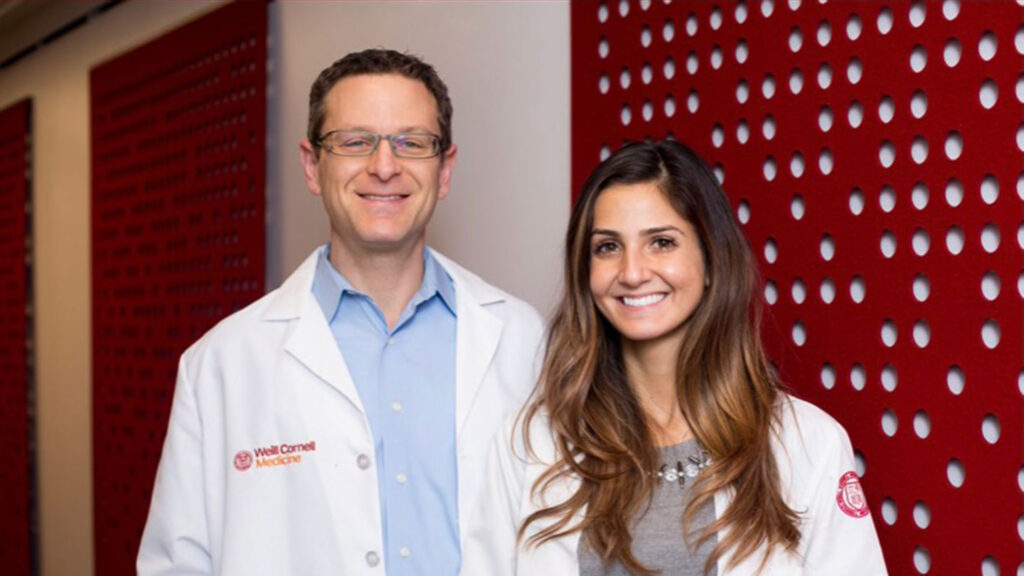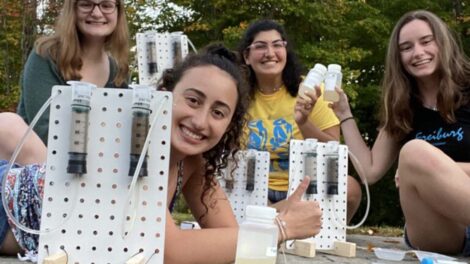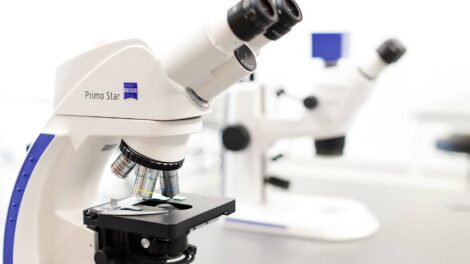Neurologist and bio alum hoping to change the face of Parkinson’s disease shares how she puts her Lafayette coursework into practice every day
Kellyann Niotis ’12 is a Movement Disorders Fellow at Mount Sinai Health System’s department of neurology in New York City. Through her fellowship, she trained to care for patients with Parkinson’s disease and related disorders. This summer, Niotis will be rejoining the faculty at Weill Cornell to expand its Alzheimer’s Prevention Clinic to include preventive interventions for patients with Parkinson’s disease and associated dementias. She takes a different approach to treatment by crafting personalized prevention plans based on an individual’s lifestyle, genetic makeup, and underlying biology to mitigate risk in predisposed patients. Niotis earned her medical degree from Commonwealth Medical College, now known as Geisinger Commonwealth School of Medicine. Subsequently, she completed her neurology residency training at NewYork-Presbyterian/Weill Cornell Medicine, where she served as administrative chief resident her fourth year. She holds a Bachelor of Science degree in biology from Lafayette College.

Kellyann Niotis with mentor Dr. Richard Isaacson at Mount Sinai Health System’s department of neurology in New York City.
What sparked your interest in neurology? Was this something you always wanted to do?
I’m still waiting for my ‘aha’ moment! [Laughs.] In all seriousness, I think it’s really important for those early in their career journey to know that it’s OK to not have a defined moment where you say, ‘Yes, this is what I want to do for the rest of my life.’ Even now, I’m still figuring it out! The truth is that I just loved learning, and I enjoyed a lot of different subjects. Biology was my clear favorite; but even among biology, I found it difficult to choose one path and went back and forth several times before ultimately deciding to pursue medicine. With neurology, I saw a field with limited effective treatments, which inspired me to dig deeper and rethink our approach to managing neurological disorders.
What do you love about the work you do? How do you hope to change the world for the better?
I hope to encourage people to take ownership over their own health. Not only do we have control over our destiny, but it may even be possible to win the tug-of-war against your genes. I’m hopeful that, through our research and work, we get closer to preventing Parkinson’s disease.
How did Lafayette help lay the foundation for your career?
Part of the reason I chose Lafayette is my love of learning. I wanted the liberal arts experience, and now I’m so grateful that I got exposure to everything from art history, to government, to sociology. It has shaped my thinking and the way I approach diverse people.
Were there any particular professors, courses, or experiences that were especially influential to you during your time at Lafayette and that continue to impact your work today?
I worked closely with James Dearworth [associate professor of biology and neuroscience], who mentored me as I developed an independent research project studying circadian rhythms and pupillary light response in the red-eared slider turtle. Looking back, this is how my passion for neuroscience and neurology began—it was my very first exposure. Now, as a neurologist, I’m testing pupillary light response in my patients every day. Dr. Dearworth was the first person who taught me how to critically think about biology, and he encouraged me to find answers to unknown questions. This is what I’m still doing every day.
I also want to highlight my Conservation Biology course with Megan Rothenberger [associate professor of biology]. I think about this class on a weekly basis—no joke! I am a huge environmental advocate and scuba diver. This course made me aware of how my everyday actions affect the planet, and I even take the environmental impact into consideration with the recommendations I give to patients.
What kind of advice can you offer to current biology students about how to apply what they’re learning to their future careers?
Be open-minded, and don’t be afraid to take risks. This is your time to focus on your own personal development; take it all in and enjoy. Get involved, as the connections and friendships you make at Lafayette will last long after graduation. You never know where your journey may take you!


